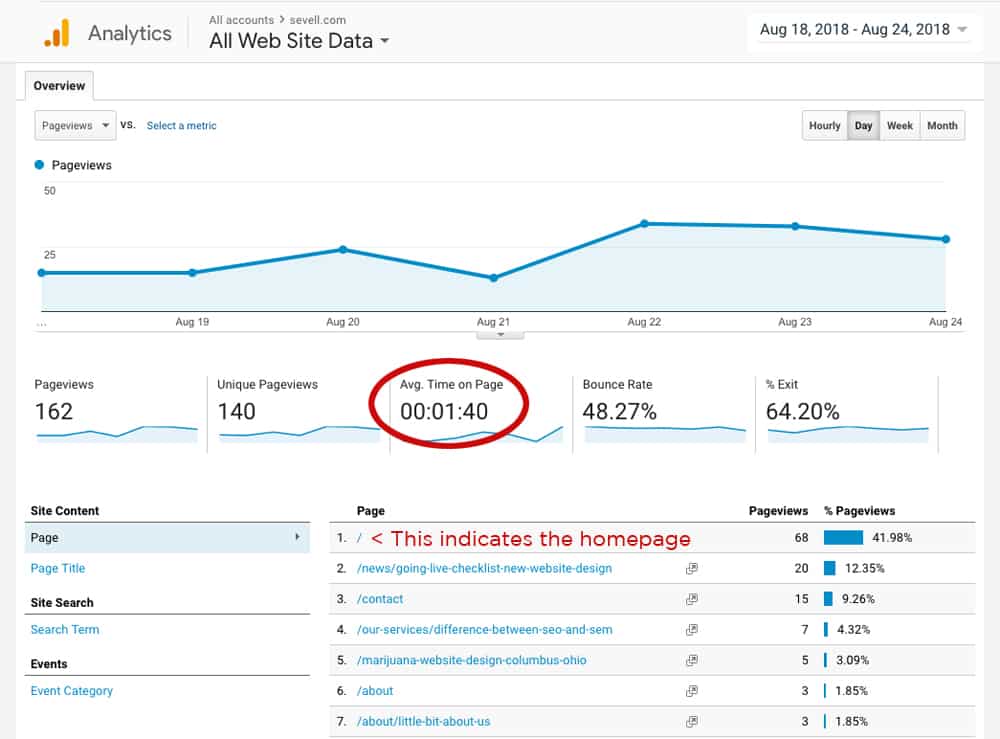Why UX Matters? – Relationship Between UX and SEO
Do you want your website to both appeals to users and prove to search engines that it is powerful? Great, you can definitely do that. One of the most important concepts recently is UX: that is, user experience. If you give enough importance to this issue and ensure that your website is user experience-oriented, you can achieve strong results in a very short time. Today, we will examine why UX has been talked about so much lately and what can be achieved with a strong UX. In addition, if you can achieve a strong UX in terms of design, performance, accessibility, and content quality of the pages on your site, the SEO results you will get will be very fast. In the continuation of our content, we will be giving detailed information about how SEO and UX are related. If you’re ready, we’ll start right away: Explore why UX matters now!
As Screpy experts, we know how valuable it is for your site to appeal to search engines and deliver strong UX results in terms of customer acquisition, time on page, or other metrics. That’s exactly why we care the most, to ensure that you are target-oriented in optimization by ensuring that you analyze your pages one by one in these respects. In this context, we present Screpy as an “all-in-one” tool. There are a lot of things you can do by working with Screpy. You can analyze the pages on your site in terms of speed, track your ranking performance on certain keywords, review your SEO scores thoroughly, and take a look at your accessibility scores to get an idea of UX. Moreover, thanks to the tasks, you will get important tips on how to make optimizations. It’s that simple. Now, we continue with content that will make you know and understand UX very well.
Try for free to boost your website traffic!
What is UX? And Why Does UX Matter?
UX, also known as user experience, refers to the quality level of interaction that users have with your website. The interaction that the user enters with a product, service or system should basically have the following characteristics:

- Useful: It is important to reach the product, service, or content that is useful for the user. Therefore, this is expected from the products.
- Accessible: Not being able to access a useful and beautiful product or service will cause this benefit to be ineffective. Therefore, it is very important to make sure that the prepared product is accessible in terms of its properties. This refers to platforms that do not have accessible buttons on websites, broken links. Accessibility will also mean that clickable areas work properly.
- Convenience: Accessibility is important, but it should also be easy to access. People do not want to spend a long time on a single action in a fast-paced life. You also need to set up a website that is easy for people to navigate and find certain functions.
- Efficiency: Every area of the site must be set up to support basic efficiency. Especially in mobile devices with narrow screens, efficiency becomes extra important. Because in this narrow area, non-vital areas for the user should be completely canceled. Accordingly, each simplification process to be carried out should target efficiency.
- Speed: We have already said how fast the world is and how many competitors you have. That’s why it’s important to set up your website so that it loads quickly on both mobile devices and computers. UX and page speed largely go hand in hand. For example, if your site’s loading time is longer than 3 seconds, the rate of users saying “I don’t have time to wait for what’s going on here” increases. This results in a quick bounce.
Why Does UX Matter? – The Power of UX in the Digital World
A good UX can drastically change the race in the digital world. It is possible to attribute this change to 5 different reasons. Now we will tell you about the advantages of UX, which has the power to change the rules of the game:
A good UX score can create an emotional connection between your product and the consumer.
Here is why UX matters: Many studies say that a properly designed user experience creates a tight bond between the product and the consumer. The consumer gets used to using the accessible, useful, fast, and effective product and incorporates it into his daily life routine. This leads to an increase in the loyalty developed towards the product in question in terms of quality, sound, texture, and appearance. For example, the fact that Netflix has a user-oriented and powerful interface may even cause people to give up watching TV shows that are not available on Netflix. Because hey, they want to see the conveniences of Netflix everywhere now. That’s exactly why their loyalty to Netflix is so much higher.

A good UX saves users time by making things happen faster.
The fact that things go fast will mean that users who complete their transactions in a short time will prefer you more often in the fast-flowing world. This basically refers to the relationship between page speed and UX.
Consider that a website is fast. A person buying a product can do so much faster when navigating the options on this type of site. In addition, not encountering any freezing or slowness in the purchasing process will have the following effects on the user:
- A higher brand value: The brand that looks professional will create a much more prestigious aura
- Convincing the user to buy: If there are many steps between the sale and the product review, and these steps are slow, the user’s decision-making process may be interrupted and it may be possible to abandon the purchase action. Therefore, speed is primarily necessary to persuade the user to sell.
- SEO: A fast enough website sends an important message to Googlebots that it is user experience oriented. According to Google, which cares a lot about the Pagespeed metric, it is very important to have a site that loads and runs fast enough. In this way, rankings are positively affected by this situation.
A good UX makes the service or products you offer on your website perfect.
You may not be as popular as your competitors in the market. The products you offer may not be as strong or of good quality as those offered by your competitors. Still, you need one more variant that can make your content, product or service great. Let’s say what that variable is: Good UX.
A website enriched with images and videos, a fast load time, a website theme optimized with various colors and much more will help you maximize your productivity. Your products may not be perfect, but making them accessible, useful, effective increases their score and causes people to choose your site over others. We are sure that you will notice this immediately when you take a look at the most preferred e-commerce sites, blog projects and more recently.
A good UX increases the time spent on the website.
Want to have more answers to the question of why UX matters? Imagine you are on a website and it gives you a fast, accessible, powerful, userful experience. Rest assured, you will want to spend more time on this type of website. Well, what exactly can this provide? Let’s say right now. Many studies say that Google cares about the time each user spends on your site. If people navigate through various pages of your site, read the content on your site and show various signs of conversion, instead of leaving immediately after entering your site, you are giving a very important message to Google: “Hey, the user who came here really likes what he sees here, so he decided to spend time here.”

Google loves websites that give users what they demand. This is exactly why websites with low bounce rates and high on-page time are more likely to rank in more words. While crawling these pages, Googlebots notice their statistics and manage the indexing process accordingly. After all, the content you create with strong UX values increases the time people spend on your site, and the number of people who can spend time on your site will increase over time. When all these factors come together, you gain a much stronger visibility.
What can you do to increase the time people spend on your pages by taking strong steps in SEO? We would like to show you a few different examples. Here are some of them:
- Try to enrich the overall flow of your content with images, various videos or infographics.
- Organize the titles, paragraphs, and general flow of your content in a way that is easy to follow. You can also add a table of content to your content to set up such a flow.
- Feel free to bold the areas in your content that need attention or change the font. In this way, you will get much better results.
- Build the overall scope of your content to provide one-to-one answers to frequently asked questions. In this way, the probability of someone finding what they are looking for in your content increases, reading at a higher rate.
What is the Relationship Between UX and SEO?
A lot of UX work done allows your site to rank strongly on certain keywords and helps you get strong results. In order to achieve this, we will talk about what you need to pay attention to and how the relationship between UX and SEO is built.

UX is a very popular concept for Google lately. Various metrics measured by Google Lighthouse and Search Console actually aim to understand your UX score directly.
Why SEO and UX related?
Let’s take a look at the SEO benefits of a strong UX:
- Keeping the user experience at a high level will increase the time users will spend on your site. This produces great results by sending the message to Google that your site is a platform with a high level of quality.
- A strong UX increases your popularity and gets people talking about you among themselves. This will mean that your traffic will increase over time, both through various algorithms and through people’s advice to each other, and new people will get to know you. As you get the strongest results on UX and your traffic increases over time, so will the potential for Google to rank you higher.
- One of the most important features of a good UX is that it requires a fast page load process. This will cause people to stay on your site and choose your site for shopping or other resources. People are much less likely to bounce off a fast page. This will indirectly mean an increase in the time spent on your site. It is possible to achieve all of these with a strong UX. Are you ready to provide a new generation experience to your users and prove yourself to search engines with the powerful statistics and scores you will obtain?
- A good UX makes it easy for users to find what they are looking for on your site and take advantage of it. This increases the likelihood that people will choose you for certain actions in everyday life. Traffic and customer retention will increase your website’s potential to be ranked better. It’s that simple.
FAQ
Does user experience affect SEO?
Of course! A strong enough user experience will mean an SEO marathon in which you manage to get much higher results in a short time. All factors, from page speed to bounce rate rates, from time spent on your site to conversion rates, are strengthened by user experience and SEO is positively affected by them at the end of the job.
Should UX designers know SEO?
Yes, because to know SEO and to do a job that will strengthen the site in the eyes of search engines, it is necessary to know SEO first. SEO is very important to understand the intent, to discover what features search engines show the content they show to the users, and to design the content accordingly.
How SEO improves user experience?
Many requirements of SEO conflict with those of UX. When you browse SEO best practices, you’ll see that SEO and UX demand similar things, especially in terms of speed, availability, accessibility.
What is in Page SEO?
All of the optimizations made to ensure that each page on your site is user-oriented will strengthen the experience, target-oriented, findable, and accessible, and has a fast structure is called on-page SEO.
Test Your Website Issues
You can quickly analyze your site